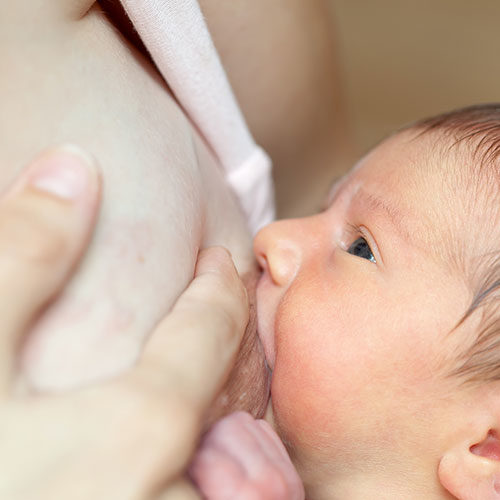Why does my baby not sleep at night?
Sleep in babies is a widely discussed topic as new mothers and parents struggle quite a lot with sleep deprivation. To understand sleep in babies, it is essential to understand the differences in the sleep patterns and sleep cycles between babies and adults.
Sleep patterns in babies:
Sleep patterns in babies are influenced by both – genetic and environmental factors. Newborns and young infants are famous for sleeping and waking up at unusual times. It happens because their circadian rhythms (our body cycle that corresponds to day and night) aren’t yet synchronized with the natural rhythms of daylight and darkness. Research suggests that all babies develop their circadian rhythms at different times. Exposing babies to ample sunlight during the day and dimming the artificial lights as bedtime approaches can help this process.
Sleep cycles in babies:
Sleep has several stages like light sleep, transitional sleep, deep sleep, REM (Rapid Eye Movement) etc. When one whole sequence of all the stages is complete, one sleep cycle is said to be complete.
Adult sleep cycles are approximately 90 to 100 minutes long. In babies, sleep cycles are much shorter – ranging from 30 to 60 minutes, depending on the age of the baby. Younger the baby, the shorter the sleep cycles.
Sleep lab research shows that we’re especially prone to awaken during or immediately after REM, which is the last stage of the adult sleep cycle, but the very first stage of the baby sleep cycle. This is why babies are more prone to wake up often. Another thing is that – REM makes for about 20% of total adult sleep time. Whereas, in newborns and young babies, REM makes up for more than 50% of their total sleep hours – increasing their possibility of waking up often even more. One might wonder why so much REM for babies when it doesn’t let them sleep longer. The reason is that – REM is important for brain development and light sleeping helps babies protect themselves from oxygen deprivation.
Along with the points mentioned above, babies are biologically designed to wake up often to nurse. It helps them maintain their hydration and sugar levels.
When do babies start sleeping through the night?
Sleeping through the night is a developmental milestone which each baby achieves at different times. Every baby is different and gradually starts sleeping through the night when she is developmentally and emotionally ready for it. Some research has shown that some babies start sleeping for 5+ hours at a stretch from as early as 2-3 months of age. Research has suggested that upto 80% of babies start sleeping for 5+ hours at a stretch by the age of 9-12 months. However, these claims are not in line with what most parents observe and experience with their babies around the world.
In BSIM alone, lots of mothers have babies waking up several times during night until they are well beyond 2 years.
Myths about sleeping through the night:
- People have different notions about an age by which a baby should be sleeping through the night. This is not true, and all babies achieve this milestone when they are ready to. It happens gradually as babies start sleeping for increasingly longer periods of time.
- Some people believe that giving formula will make babies sleep through the night. Albeit, it’s true that breastfed babies wake up more often as breast milk is easier to digest, it’s not fair to overlook the risks of formula feeding / not breastfeeding.
- For older babies, people feel that filling them up with solids can make them sleep longer. This is not true, overfeeding a baby does more harm than good.
- Some feel that night-weaning or weaning the baby altogether could solve the problem. This is untrue as well. Many mothers who weaned their babies have reported that their babies kept waking up at night for many months even after weaning completely. They eventually learned to sleep through the night when they were ready for it.
- The connoisseurs of sleep training often suggest the cry-it-out method. This is very harsh and can have long lasting traumatic impacts on the baby’s mind. At BSIM, we do not recommend any kind of sleep training.
- Some people believe that comforting the baby at night is teaching her a bad habit. That is a very poor belief. Meeting a baby’s emotional needs or making a baby feed secure cannot be a bad habit.
Breastfeeding and Sleep:
Breastfeeding can enable mothers and parents to have as less-interrupted sleep as possible.
- Co-sleeping and breastfeeding minimizes the disruption of sleep to a great extent for the mothers.
- Nursing lying down can help mothers catch up with the much needed rest and sleep.
- Breastfeeding is the most convenient and easiest way to put a baby back to sleep. All other methods like singing, rocking, patting, walking require much more effort and disrupt the mother’s sleep completely.
- Breastfeeding fulfills nutritional needs of the baby during night.
- Even when the baby is physically grown enough to go long hours without feeds, she may continue to wake up during nights due to emotional needs, which can be met by night nursing. Meeting these needs also contribute to the baby’s overall development.
- In the early days, a breastfeeding mother who co-sleeps is more likely to pick up on the baby’s early hunger cues. So, even though breastfeeding babies wake up more often; statistics show that SIDS is significantly less prevalent among breastfed babies as opposed to formula-fed babies.
How to help babies sleep better?
There are no techniques that guarantee a good night’s sleep for a baby, but there are some strategies that have worked for some mothers and parents.
- For younger infants, give plenty of exposure of sunlight during the daytime and as night begins and bedtime approaches, dim the artificial light. This could help set their circadian rhythms.
- Sticking to a bedtime routine helps maintain predictability and familiarity.
- Forcing a baby to sleep can have counter effects and may excite the baby more.
- For older babies, poorly timed naps can be avoided to ensure better sleep at night.
- Avoiding sugary food at night can prevent the sugar rush that sometimes keeps babies awake and active.
- Providing warmth and a sense of security to the baby through hugging, cuddling, talking etc. can help a baby sleep better.
- Some babies prefer soothing music whereas some prefer complete silence.
References :
https://www.parentingscience.com/baby-sleep-patterns.html
https://www.sleepfoundation.org/baby-sleep/baby-sleep-cycle
https://www.llli.org/infant-sleep/
https://kellymom.com/parenting/nighttime/sleep/
Wish to speak with a member of our team who is a certified lactation professional and also an experienced breastfeeding mother, click on this link.

Medical Advice Disclaimer
THIS WEBSITE DOES NOT PROVIDE MEDICAL ADVICE.
The information, including but not limited to, text, graphics, images and other material contained on this website are for informational purposes only. No material on this site is intended to be a substitute for professional medical advice, diagnosis or treatment. Always seek the advice of your physician or other qualified health care provider with any questions you may have regarding a medical condition or treatment before undertaking a new health care regimen, and never disregard professional medical advice or delay in seeking it because of something you have read on this website.
Disclaimer
We understand and acknowledge that parents and babies can be of various genders on a spectrum of LGBTQI+. Families come in diverse flavours. However, in our articles, for the sake of simplicity and convenience, we will be referring to the breastfeeding parent as the mother and using the female pronouns- ‘she’ and ‘her’ for babies. Babies can be nourished and nurtured in different ways and while we have used the terms breastfeeding and nursing, we recognize that parents can opt to chest feed or finger feed.
We don’t have conflicts of interest and declare, and we are compliant with the WHO code of marketing of breastmilk substitutes and the IMS act.
In case you find any information on this website that needs to be updated, please write to us at info@bsim.org.in






